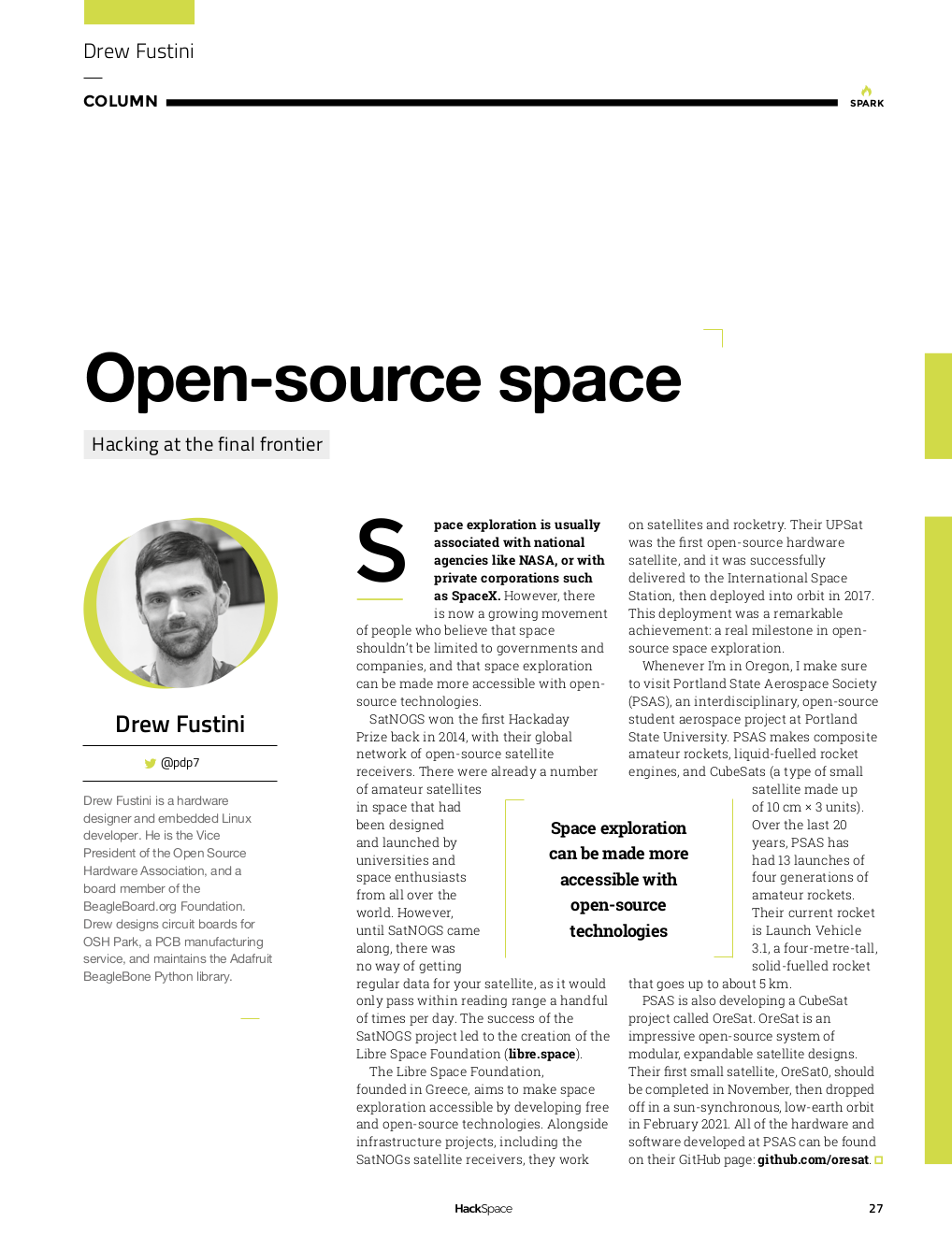Drew’s column in the new HackSpace magazine is dedicated to open source space projects like PSAS, OreSat, SatNOGS and the Libre Space Foundation:
Space exploration is usually associated with national agencies like NASA, or with private corporations such as SpaceX. However, there now is a growing movement of people who believe that space shouldn’t be limited to governments and companies, and that space exploration can be made more accessible with Open Source technologies.
SatNOGS won the first Hackaday Prize back in 2014 with their global network of Open Source satellite receivers. There were already a number of amateur satellites in space that had been designed and launched by universities and space enthusiasts from all over the world. However, until SatNOGS came along there was no way of getting regular data for your satellite, as it would only pass within reading range a handful of times per day. The success of the SatNOGS project led to the creation of the Libre Space Foundation.
The Libre Space Foundation, founded in Greece, aims to make space exploration accessible by developing free and Open Source technologies. Alongside infrastructure projects including the SatNOGs satellite receivers, they work on satellites and rocketry. Their UPSat was the first Open Source hardware satellite, and it was successfully delivered to the International Space Station then deployed into orbit in 2017. This deployment was a remarkable achievement: a real milestone in Open Source space exploration.
Whenever I’m in Oregon, I make sure to visit Portland State Aerospace Society (PSAS), an interdisciplinary, Open Source student aerospace project at Portland State University. PSAS makes composite amateur rockets, liquid fueled rocket engines, and CubeSats (a type of small satellite made up of 10cm3 units). Over the last 20 years PSAS have had 13 launches of four generations of amateur rockets. Their current rocket is Launch Vehicle No 3.1, a four meter tall solid fueled rocket that goes up to about 5km.
PSAS is also developing a CubeSat project called OreSat. OreSat is an impressive Open Source system of modular, expandable satellite designs. Their first small satellite, OreSat0, should be completed in November then dropped off in a sun synchronous low earth orbit in February 2021. All of the hardware and software developed at PSAS can be found on their GitHub page.


